Standards – technical tools shaping action in green transition
In the context of the global move towards the goal of net zero emissions and implementing commitments to reduce greenhouse gas emissions under the Paris Agreement, Vietnam has demonstrated strong determination with a series of important policies of the Party and State.
Resolution No. 24-NQ/TW dated June 3, 2013 of the Party Central Committee on proactively responding to climate change, strengthening resource management and environmental protection; National Strategy on Green Growth for the 2021-2030 period, with a vision to 2050 (Decision 1658/QD-TTg dated October 1, 2021); and the Prime Minister 's commitment at COP26 to achieve net zero emissions by 2050 have created the foundation for green transformation to become the mainstream of national development.
In addition, major policies, such as: Project on sustainable smart urban development for the period 2018-2025, with a vision to 2030 (Decision 950/QD-TTg dated August 1, 2018); National digital transformation program (Decision 749/QD-TTg dated June 3, 2020); National energy master plan for the period 2021-2039, with a vision to 2050 (Decision 893/QD-TTg dated July 26, 2023)... all clearly affirm the role of science , technology and standards in the process of sustainable development.
In that context, standards become an important technical tool to help realize the Party and State's policies and guidelines, shape the actions of businesses, management agencies and people, promote green growth, green transformation and sustainable development.
Standardization activities are considered one of the pillars of technical institutions, helping to specify requirements on environmental management, energy, sustainable production and responsible consumption. National standards (TCVN) are built, harmonized with international standards such as ISO, IEC, ITU, contributing to improving competitiveness, creating favorable conditions for green trade and investment.
Standards play a guiding role, creating a “common language” for parties in the green value chain. Thanks to that, technical criteria, measurement indicators and assessment tools are established uniformly, serving the process of policy making, production and commercialization of green products and services.
The standards also promote technological innovation, helping businesses improve resource efficiency, save energy, reduce emissions, and expand access to international export and investment markets.
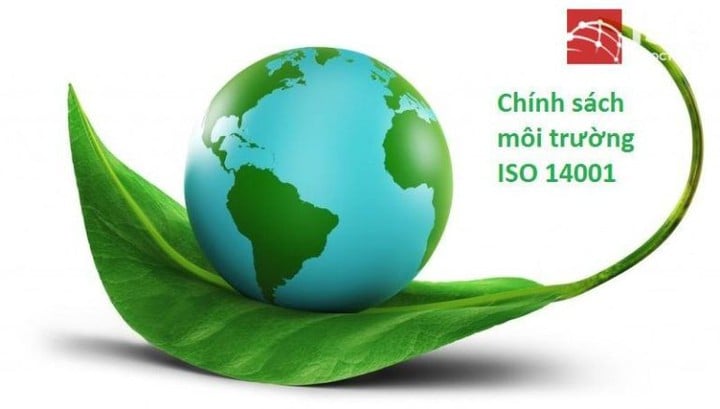
In particular, the standard is the foundation for certification mechanisms, eco-labeling, carbon credits and ESG assessments, contributing to the formation of transparent, trustworthy and sustainable green markets.
National standards system – technical foundation of green development
The TCVN system serving green growth, green transformation and sustainable development currently covers more than 10 key areas such as environmental management, renewable energy, sustainable agriculture, circular economy , smart cities, green transport and new fuels. Most of these standards are built in harmony with international standards, helping Vietnam integrate and at the same time support the implementation of legal regulations on environment, energy and sustainable development.
Currently, Vietnam has more than 14,200 TCVNs with an international harmonization rate of over 65%. Of these, about 400 standards are directly related to green transformation and sustainable development. This is a technical tool and also the foundation for institutionalizing the green transformation process, contributing to shaping sustainable production and consumption models.
In the field of environmental management and greenhouse gases , there are currently 30 TCVNs on environmental management, 13 TCVNs on greenhouse gases, 29 TCVNs on water reuse, waste treatment and recycling, mainly based on the ISO 14000, ISO 14064, ISO 46001 standards. These standards help businesses inventory and reduce greenhouse gas emissions, and at the same time create the basis for the formation of a national carbon market in the future.
In the field of energy management and efficient use , there are more than 40 TCVNs, of which 37 standards on energy efficiency for household, industrial and commercial appliances are built on international standards, helping to shape the energy management framework according to ISO 50001, promoting technological innovation and energy saving.
Renewable energy is the fastest growing group of standards, with 34 TCVNs on wind power, 40 TCVNs on solar power, 18 TCVNs on storage batteries and 7 TCVNs on fuel cells, harmonized with IEC 61400 and IEC 62933. These standards contribute to promoting clean energy development, reducing dependence on fossil fuels, and moving towards a low-emission economy.
In sustainable agriculture and food , Vietnam has issued 12 TCVNs on organic agriculture, along with VietGAP standards (TCVN 11041, 11892, 13528) and standards on food safety and traceability. This system of standards supports clean agricultural production, increases the added value and competitiveness of Vietnamese agricultural products in the international market.
Circular economy and resource management are emerging areas of standardization, with TCVNs on recycling, labeling, recovery and green packaging design. These standards support the reduction of plastic waste, increase recycling rates, and move towards a closed, environmentally friendly production-consumption model.
For smart and sustainable cities , the Ministry of Science and Technology has published 32 related TCVNs, including many standards equivalent to ISO 37100 - 37125, BSI and ITU. Standards such as TCVN 37120:2018, TCVN ISO 37122:2020 or TCVN ISO 37123:2020 help measure and evaluate the effectiveness of urban development in the direction of green, smart, and climate change adaptation.
In addition, green transport standards (electric vehicles, batteries, charging equipment, vehicle safety) are being completed, contributing to ensuring compatibility, safety and emission reduction in the transport sector. In particular, Vietnam has planned to develop standards for hydrogen and green fuels , based on the ISO/TC197 and IEC TC105 standards, to serve the development of new green energy.
Standards are the core technical tools to realize green growth and sustainable development goals. In the coming time, standardization work needs to continue to play the role of a bridge between science and technology, state management and production practices, towards a green, low-emission and highly competitive economy.
Priority should be given to developing standards for new energy, recycled materials, carbon management and smart cities, while promoting international cooperation, training experts and improving testing and conformity assessment capacity. In addition, supporting small and medium-sized enterprises to apply standards will help spread the value of the TCVN system, contributing to improving the green production capacity of the economy.
In fact, the national standards system has brought many practical benefits: helping to reduce energy costs, expand export markets, increase business capacity, reduce emissions and raise public awareness. However, it still needs to be improved to cover new areas, ensuring synchronization between standardization, measurement and conformity assessment.
With a vision to 2050, when Vietnam is aiming for net zero emissions, the national standards system will continue to play the role of the “technical backbone” of green transformation, a tool connecting policy – science – business, contributing to building a green economy, sustainable development and deep integration with the world.
Source: https://mst.gov.vn/vai-tro-cua-tieu-chuan-trong-thuc-day-tang-truong-xanh-chuyen-doi-xanh-va-phat-trien-ben-vung-197251026144309763.htm


![[Photo] The 5th Patriotic Emulation Congress of the Central Inspection Commission](https://vphoto.vietnam.vn/thumb/1200x675/vietnam/resource/IMAGE/2025/10/27/1761566862838_ndo_br_1-1858-jpg.webp)





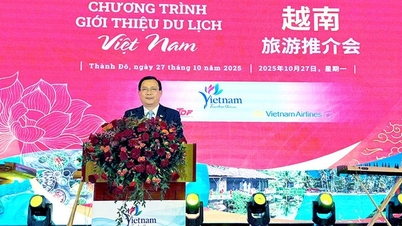






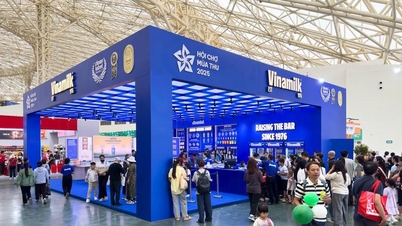




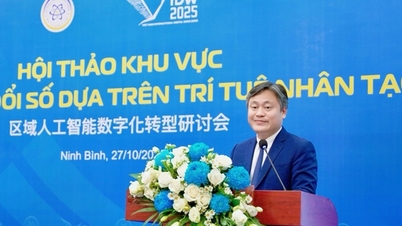
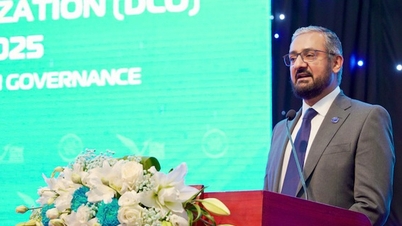
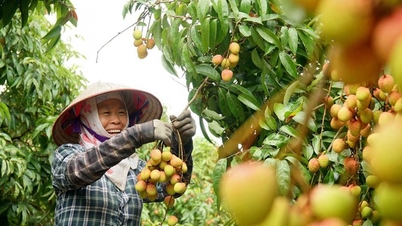



![[Photo] Party Committees of Central Party agencies summarize the implementation of Resolution No. 18-NQ/TW and the direction of the Party Congress](https://vphoto.vietnam.vn/thumb/1200x675/vietnam/resource/IMAGE/2025/10/27/1761545645968_ndo_br_1-jpg.webp)

![[Photo] National Assembly Chairman Tran Thanh Man receives Chairman of the House of Representatives of Uzbekistan Nuriddin Ismoilov](https://vphoto.vietnam.vn/thumb/1200x675/vietnam/resource/IMAGE/2025/10/27/1761542647910_bnd-2610-jpg.webp)




























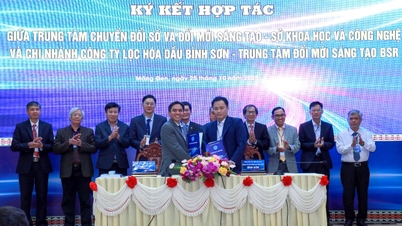
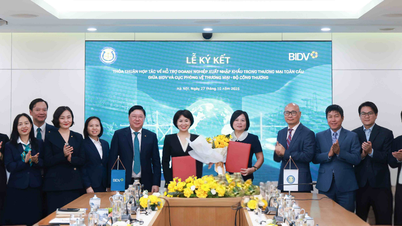






![[Photo] Prime Minister attends the 28th ASEAN-China Summit](https://vphoto.vietnam.vn/thumb/402x226/vietnam/resource/IMAGE/2025/10/28/1761624895025_image-2.jpeg)


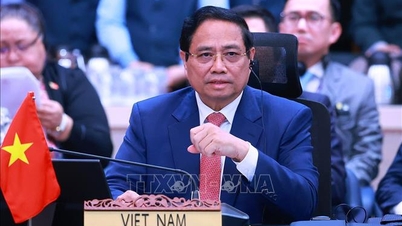





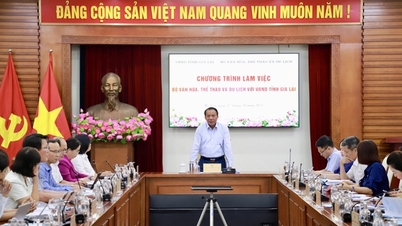
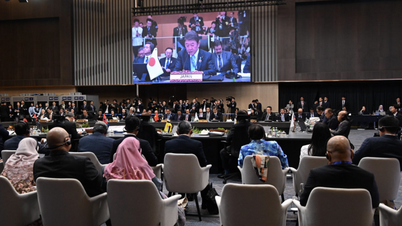
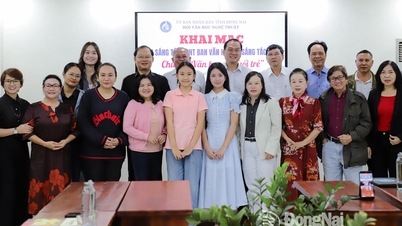

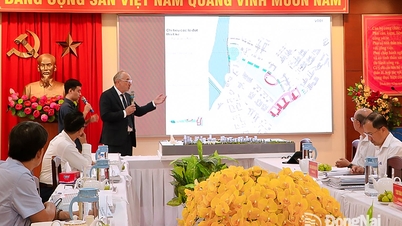
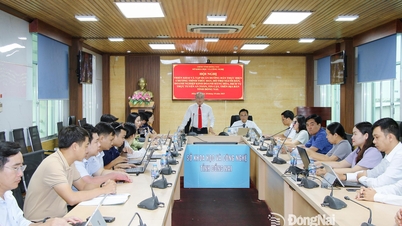


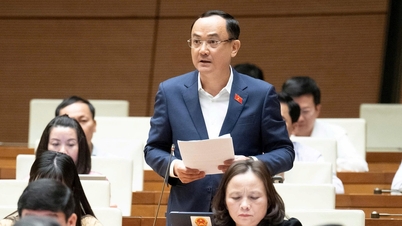
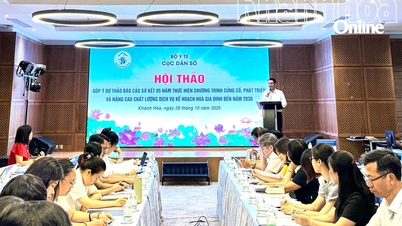

















Comment (0)